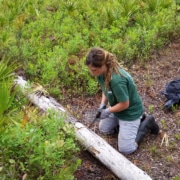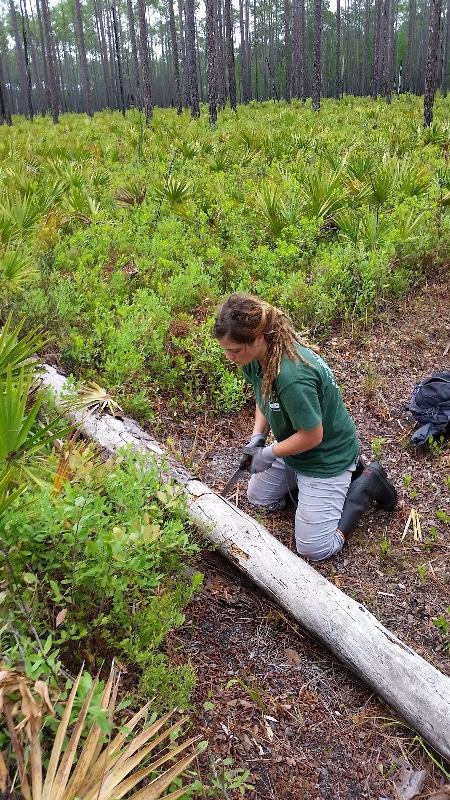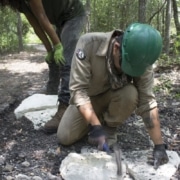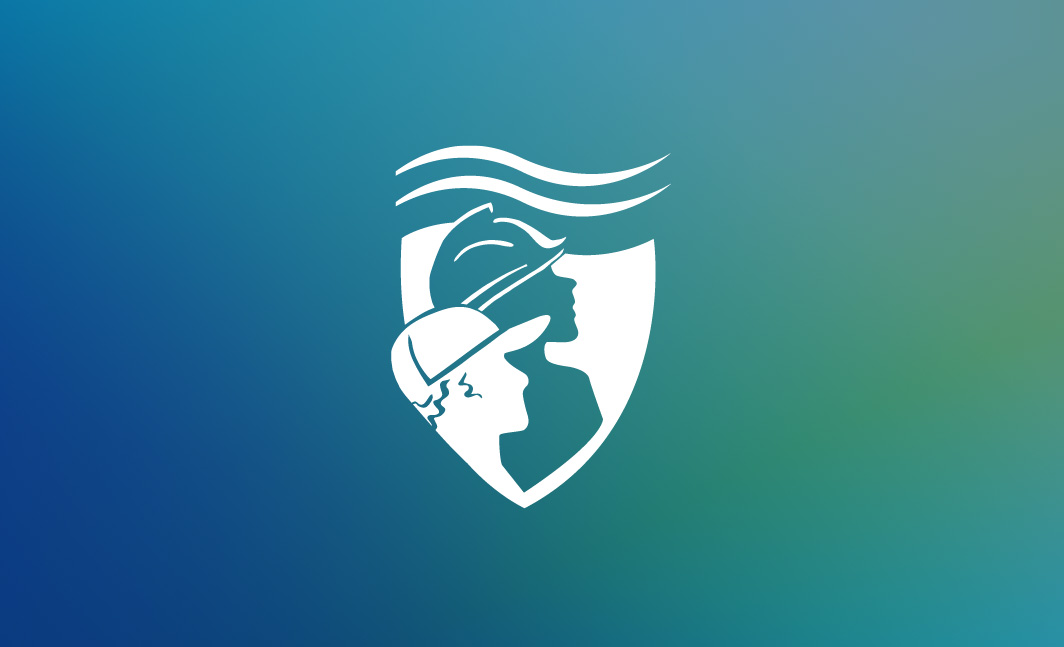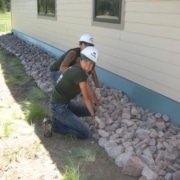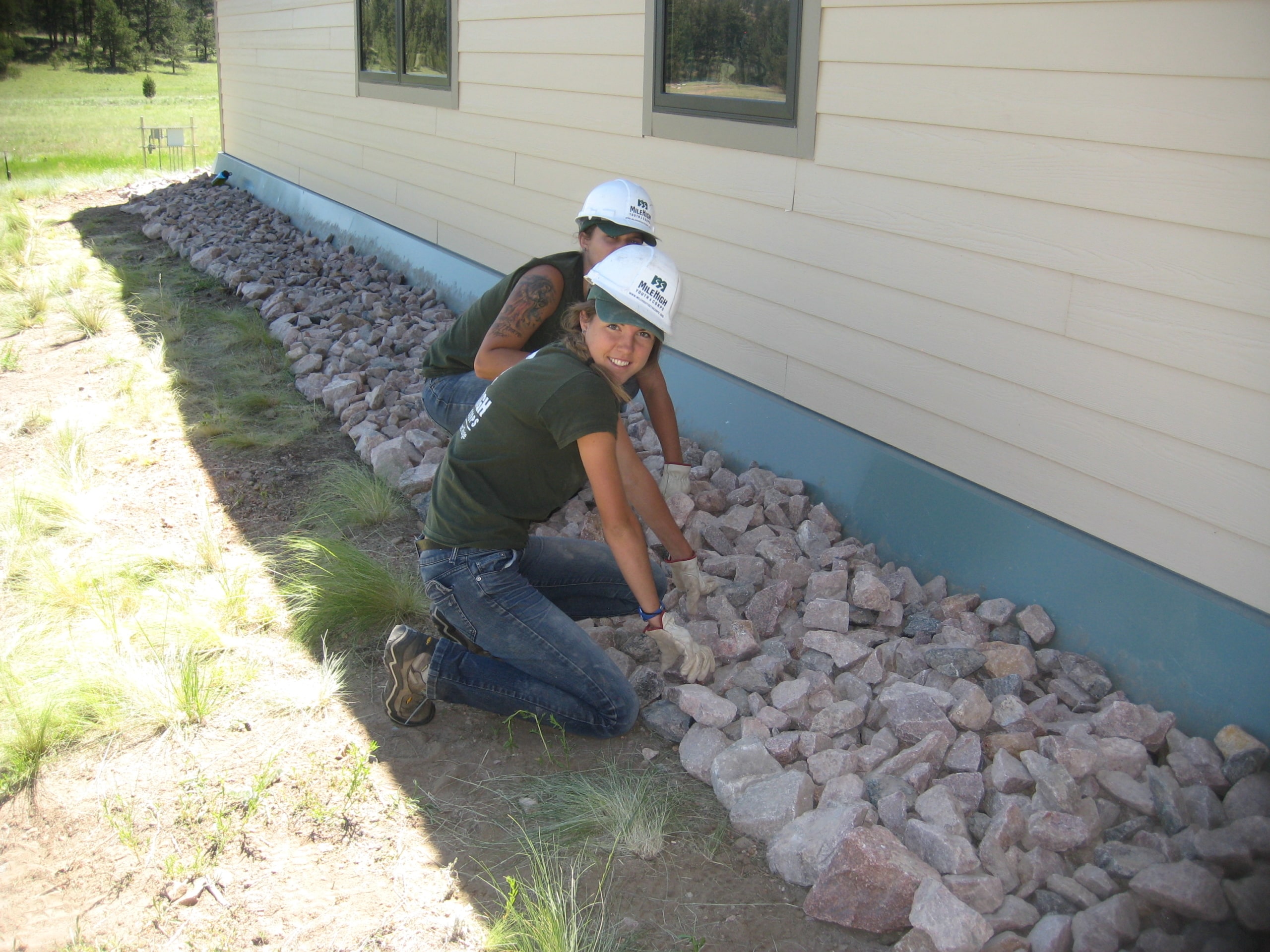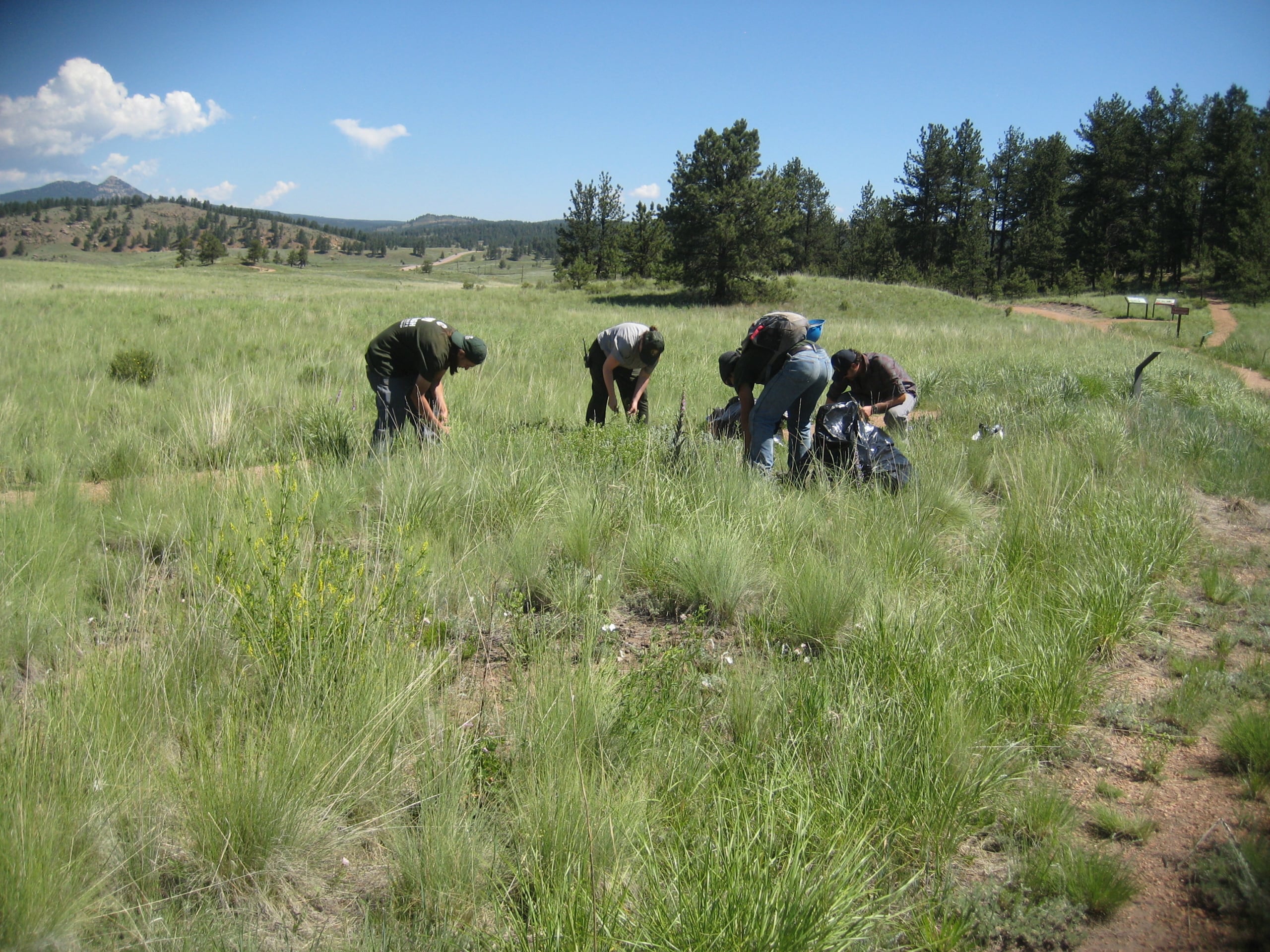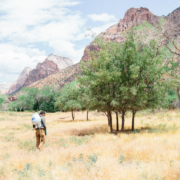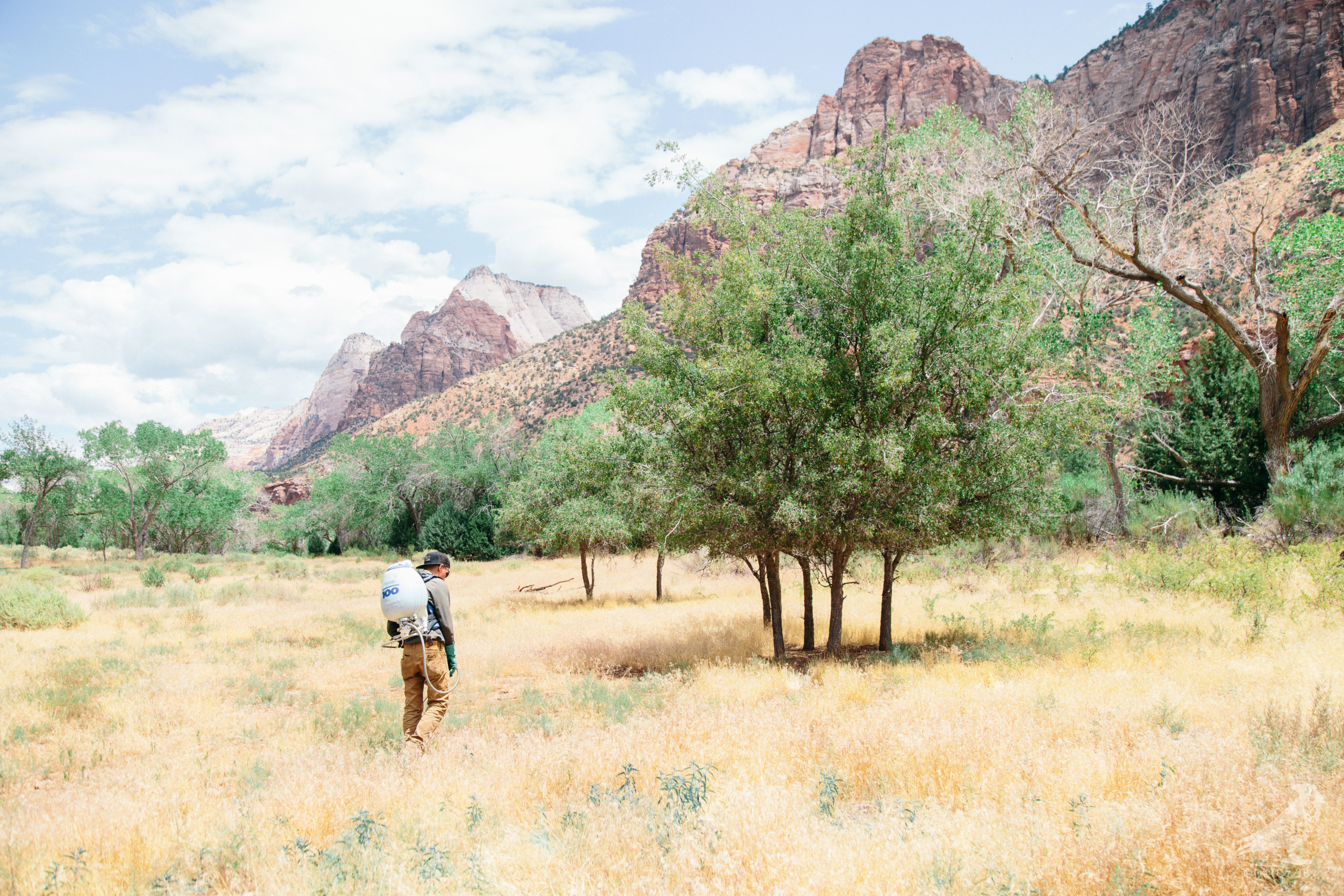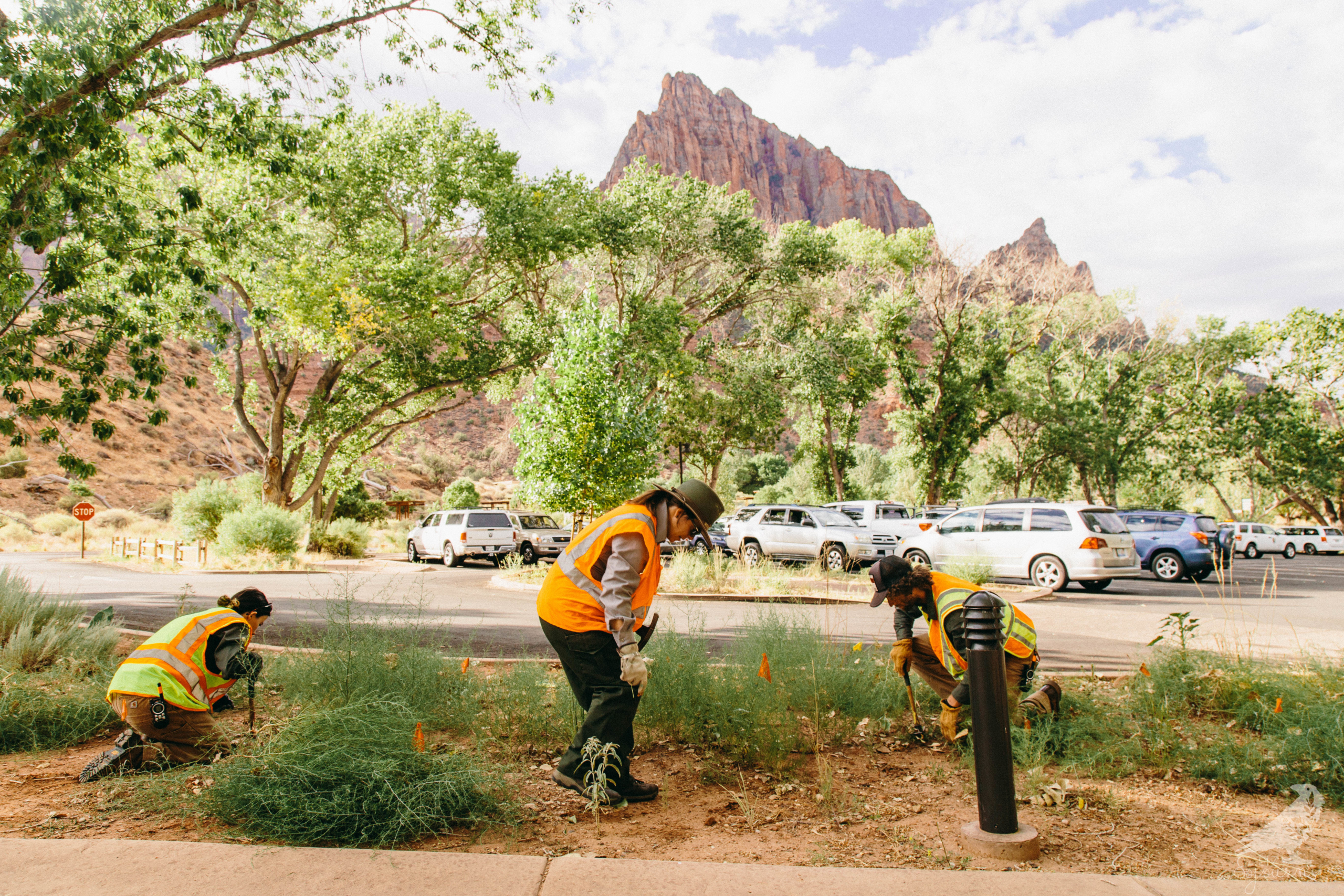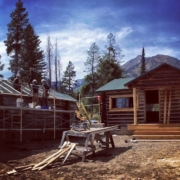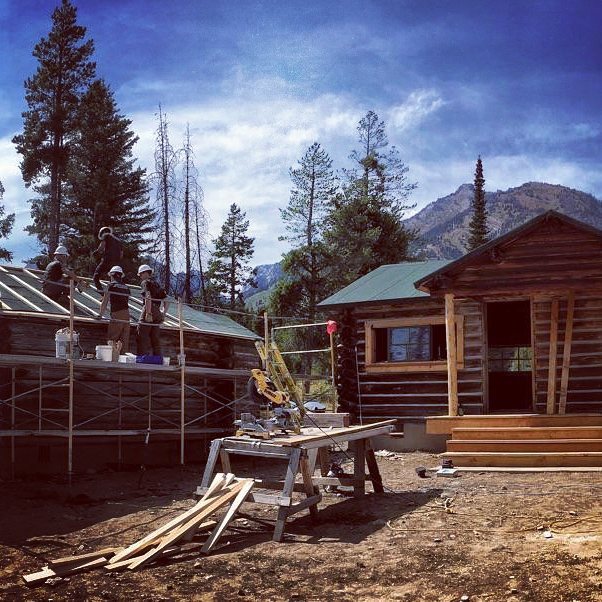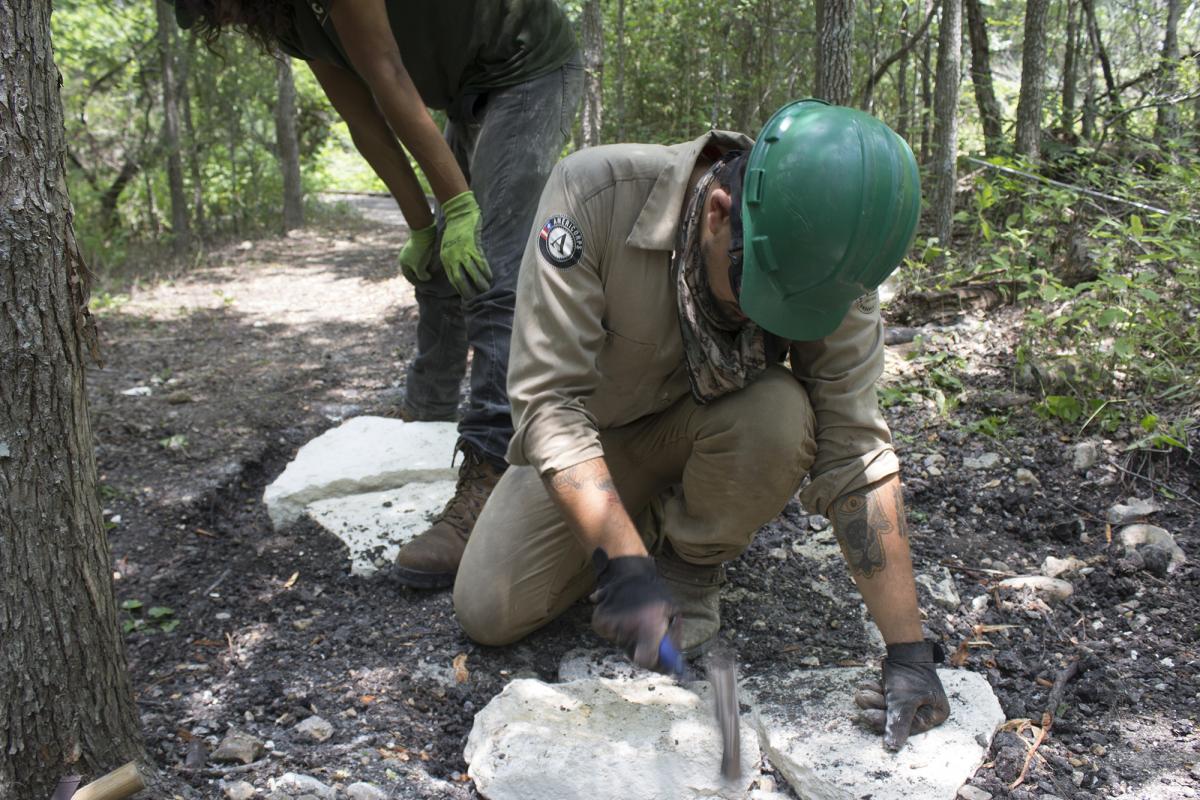
Corps play an essential role in helping address the maintenance backlog on America’s public trails. In 2016 alone, young adults enrolled in member organizations of The Corps Network built or improved almost 22,000 miles of trail!
In honor of National Trails Day this Saturday, June 3, we’re recognizing Trails Across Texas (TAT), an AmeriCorps program of Austin-based Texas Conservation Corps (TxCC) at American YouthWorks. Learn about how the TAT crew connects their community to trails and helps get more people outdoors.
Meet the Crew Leaders:
Trail work isn’t easy. Keeping popular public trails in operation requires hours of physical labor, often in harsh conditions. However, as the members of the Trails Across Texas (TAT) program at Austin-based Texas Conservation Corps will tell you, maintaining trails is one of the most rewarding jobs out there.
“Trail crews put in sweat and long hours to make the public’s experience greater,” said Ian Munoz, a TAT Crew Leader. “It’s hard, but I do it because it brings me joy like nothing else. I am constantly motivated by my surroundings when I’m working on a trail. Having the chance to work on or create something that people from all over can come to enjoy will keep me working on a trail crew for as long as I can.”
Born and raised in El Paso, Munoz is a self-described “Texas Outdoorsman” who joined TAT to give back to his home state. He recently led a project at Bastrop State Park in Central Texas. Using chainsaws and a range of hand tools – including mattocks, Pulaskis, shovels and McLeods – the crew removed hazardous trees and constructed hundreds of feet of new tread for the Lost Pine Loop.
“With all of these tools comes daily maintenance and skills to keep them working well,” said Munoz. “The skills needed for chainsaw operation and hazard felling can be overwhelming, but safety and sound judgement are essential. With trail digging comes the skill to understand the science of water-flow and erosion.”
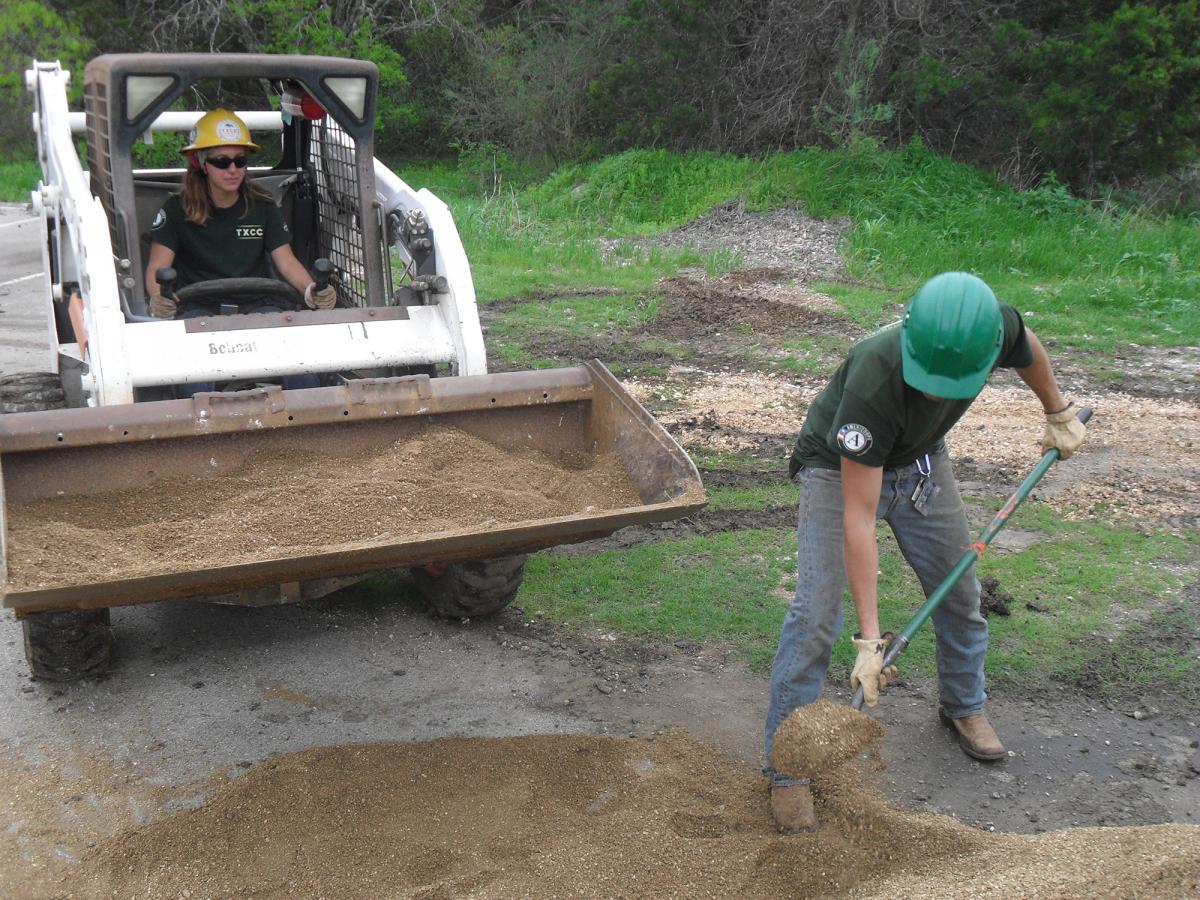
Managing water-flow is critical to maintaining trails. Karissa Killian, another TAT Crew Leader, also recently served at Bastrop. In addition to felling hazardous trees, her crew removed woody debris from the downslope of the trail. This allows water to flow off the trail instead of pooling.
“Trail crews maintain trails so that users can enjoy them,” said Killian. “We focus on making trails sustainable so that they can be used by many future generations.”
A native of Salt Lake City, Killian graduated with a Bachelor’s Degree in Environmental Science. Her first job was with a U.S. Forest Service trails and wilderness crew. Her passion for this work led her to the TAT program, where she became immersed in the routine of working and living outdoors on multi-day assignments, or “hitches.”
“I enjoy working outside, using my hands, and being engaged in physical activity,” said Killian. “[Trail work] is like working in a community. Everyone is so nice and supportive. It can be a hard transition to living on hitch for most of your time, but it is rewarding to make close connections with other crewmembers.”
The TAT crewmembers are a diverse group of young men and women. Some came to TAT with experience in the outdoors, while others came from office jobs, looking to get more in touch with nature. As AmeriCorps members, these young adults receive a modest stipend for their service and can receive an AmeriCorps education award (scholarship) upon completing their service. Through their day-to-day service with the TAT program, the crewmembers gain the skills and experience to later seek jobs in conservation and lands management. Here are some of their insights from the trail.
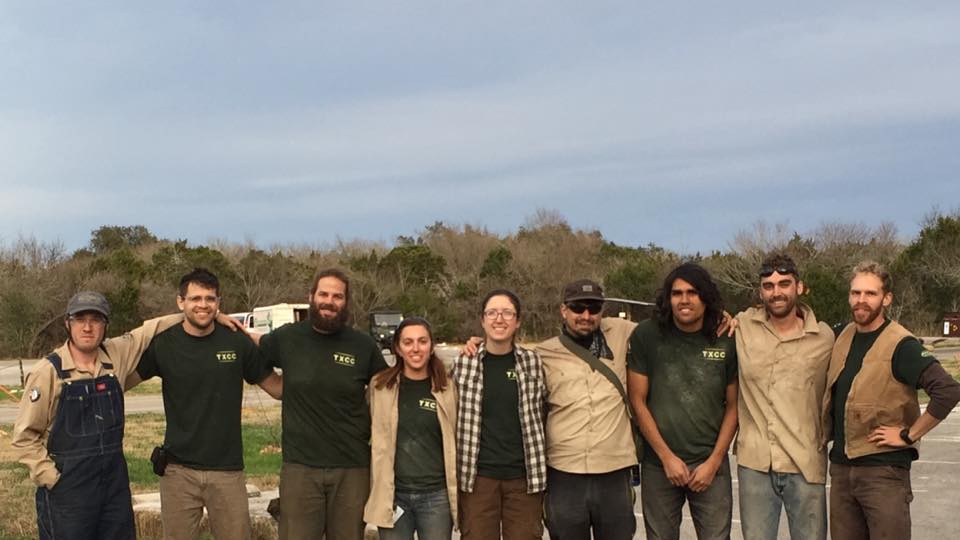
Meet Trails Across Texas Crewmembers:
Carl Woody
Age: 28
Austin, TX
“Before this I did a previous AmeriCorps program, but before that I was working at a law office for about 3 years. So, this is a little bit different from what I’ve been doing before.”
“I absolutely feel more connected with nature. When it is your office and your home, you kind of have to appreciate it. You learn to really care for what’s important and how important it is to take care of the environment. It’s the only one we’ve got, so we might as well take the best care of it we can.”
“Well, trail work requires a lot of communication and team work. It’s 10 people trying to accomplish one goal at the same time, so you have to really know how to work with each other and communicate well.
“What do I like the most? I just like working with my hands a lot. Getting dirty, hard work, sweating a lot, obviously. What do I like the least? Probably sweating a lot…it’s hot and nasty outside here most of the time.”
“I’m actually going to graduate school next fall for environmental policy and environmental science. So, keep fighting the good fight!”
Brigid MulRoe
Age: 22
Malta, NJ
“Before I joined this program, I graduated from college a year ago and I did another Conservation Corps last fall, just for 3 months. I liked it so much; I got a little taste of the Conservation Corps world and decided that I wanted to do more, so I joined the Texas Conservation Corps for a 5-month term.”
“My perspective on the environment has definitely changed since I’ve been living outside every day in a tent. We’re definitely forced to get up close and personal with the dirt and bugs and the rain, but I have really enjoyed it! I think that I feel a lot more connected to the work that I’m doing than if I were just sitting in an office thinking about it.”
“I’m a lot stronger than I thought I was. Just the fact that I’m capable of doing this work has surprised me and made me think about myself a lot differently”
“I really enjoy hitch life and living with a group of 10 people that are coming from different places and have totally different perspectives on everything, but working as a team when working on the trail or camp life. The thing I like the least, at least for this week is the bugs. Bombarded with ants, mosquitoes, chiggers, so we’re all learning to deal with that.”
“I’m planning on doing another AmeriCorps program. An emergency response program in St. Louis.”
Arturo Gonzalez
Age: 25
Salinas, CA
“Before this program I was in a back country trails crew with an AmeriCorps program with a California Conservation Corps. My supervisor told me about the TxCC program, so I came here after that.”
“I feel like I already was connected to nature. I really love nature, so even though I enjoyed it before, I still enjoy it now.”
“Being on this crew has taught me that you don’t need technology or a lot of the stuff that you’re used to having.”
“The things I enjoy the most about being on TAT crew is probably all the hiking and the general work itself, especially backcountry style rock work. My least favorite is probably chores, especially dishes.”
“Right after this, I’m not sure what I want to do, but I am gold-listed to be a sponsor for a backcountry trails crew.”
Michael “Mikey” Thomas
Age: 29
Rhode Island & Austin, TX
“I’m originally from Rhode Island but I’ve lived in Texas since I was 15 years old. I have lived in Austin for 11 years now. Before I joined TxCC, I was a kitchen lead at a restaurant. I have been doing that, primarily, my whole life. I was traveling and playing music, also.”
“I would say I always felt connected to nature, but through this program I feel more so.”
“As for what I’ve learned through this program – Lots of technique, but as far as life skills or lessons, there is a level of contentment that you learn when you’re outside, away from everything for 10 days at a time. You find pleasure in simple things; when you go back into the city, that carries over. So, I’m more content in general.”
“I love the work itself. I like the lifestyle of living in a small group and sharing food. I also like the solitude and rock, tread, and chainsaw work. There’s nothing I don’t really like. I enjoy working with my hands, so I like it all.”
“The initial goal coming here was to get a job doing park maintenance, but after doing this for a long time, I think I would like to eventually get into trail design and layout.”
Ryan Garwood
North Texas
“I’ve been living in Austin, TX for about 5 years now. Originally, I am from North Texas. Before this, I was working in an automotive shop.”
“I joined this program to do something new. I started working in the shop and being in the daily grind, and then I found this job on Craigslist. I didn’t know it was in Austin and I had been living in Austin for 5 years and never heard about it. Thankfully I found it and it was one of the best decisions I have ever made.”
“Since working on this crew, I feel way more connected to nature now. Being out 10 days at a time, you definitely get one-on-one with nature. One of the biggest things I have learned is just how powerful nature really is. That it can rebuild itself; the elements are very powerful.”
“The most valuable lesson I have learned is walk in a single file line, not shoulder to shoulder so you don’t broaden the trail out.”
“I like the comradery of the trail crew. It’s like a family environment everyone has each other’s back. Do chores, one person does one thing, and another person does another thing and it all works out. My least favorite thing is probably the bugs and insects, and creepy crawlies.”
“After my term of service, I would like to do another term, but, at the end of the day, I would like to be in Texas Parks and Wildlife or do some firefighting. That would be cool.”
Anna Jones
Age: 21
Waco, TX
“Before this I was working in a zoo at their gift shop, and before that I was working as a grocery store clerk. I heard about TxCC on Reddit and it sounded like something I would be interested in and maybe a career field that I would like to move towards. I’m really glad I made the decision!”
“I do feel more connected to nature. I’ve never really camped a lot in my life, only once before this program. It’s a different experience completely to be out in the wilderness for 10 days at a time. Especially out at Cap Rock where we were primitive camping, which was a unique experience but I really enjoyed it! Something I have learned about nature is that it is amazing what the environment can do. Out at Cap Rock we had to the stone staircase, because the rain just carves out gullies and stuff. Erosion is a big thing, it’s amazing what can happen to the earth over a span of a few years.”
“Honestly, my favorite part about this work is probably camp related things. Learning how to live out here and learning to live with minimal things. It’s a very different life than living in the city with all of these things you think you need, until you just go out into the wilderness and realize you don’t need any of them.”
“I think what I enjoy the most is honestly the comradery in the crew. You get so close with these people, working with them 10 days at a time and living with them for hours. My least favorite thing is probably the bugs. I love animals, just not insects. They get in my tent and it’s very upsetting.”
“After this, I plan to go back and finish off my degree. I want to get a degree in Wildlife Biology.”
Josh DelRio
Age: 28
“I joined TxCC for a new experience. Before TxCC, I was playing Rock n’ Roll and working for a moving company.”
“My perspective on nature has changed. What I’ve learned is that nature heals itself pretty readily, considering what humans do to it. That’s definitely the best thing I have learned about trails and nature.”
“The most valuable skill I have learned is how to live outside for more than a week. Definitely got that on lock down.”
“Being on a trail crew, at least for TAT, we’ve been to a lot of different areas. So, being able to go to all of those places and different environments were the coolest part. My least favorite, recently, is the chiggers.”
“After my term of service, I would like to get into wildland firefighting. Hopefully get the Travis County fire rescue gig. Somewhere around there, chainsaws are cool and fire is awesome. After seeing that at Cooper Lake, that probably sparked my interest very much.”
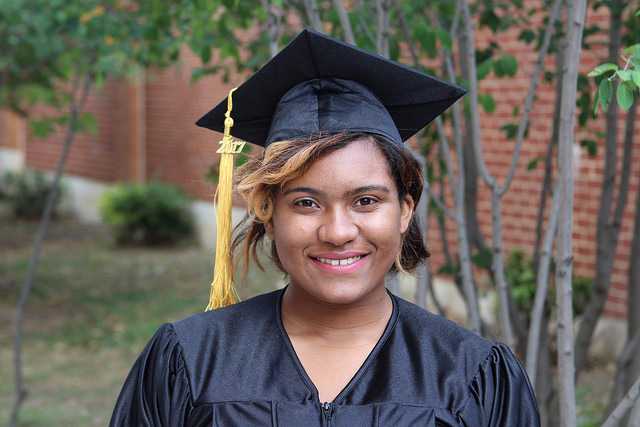

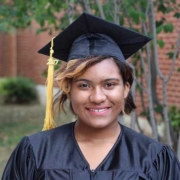
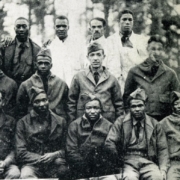



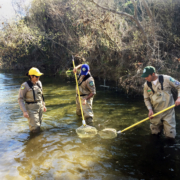
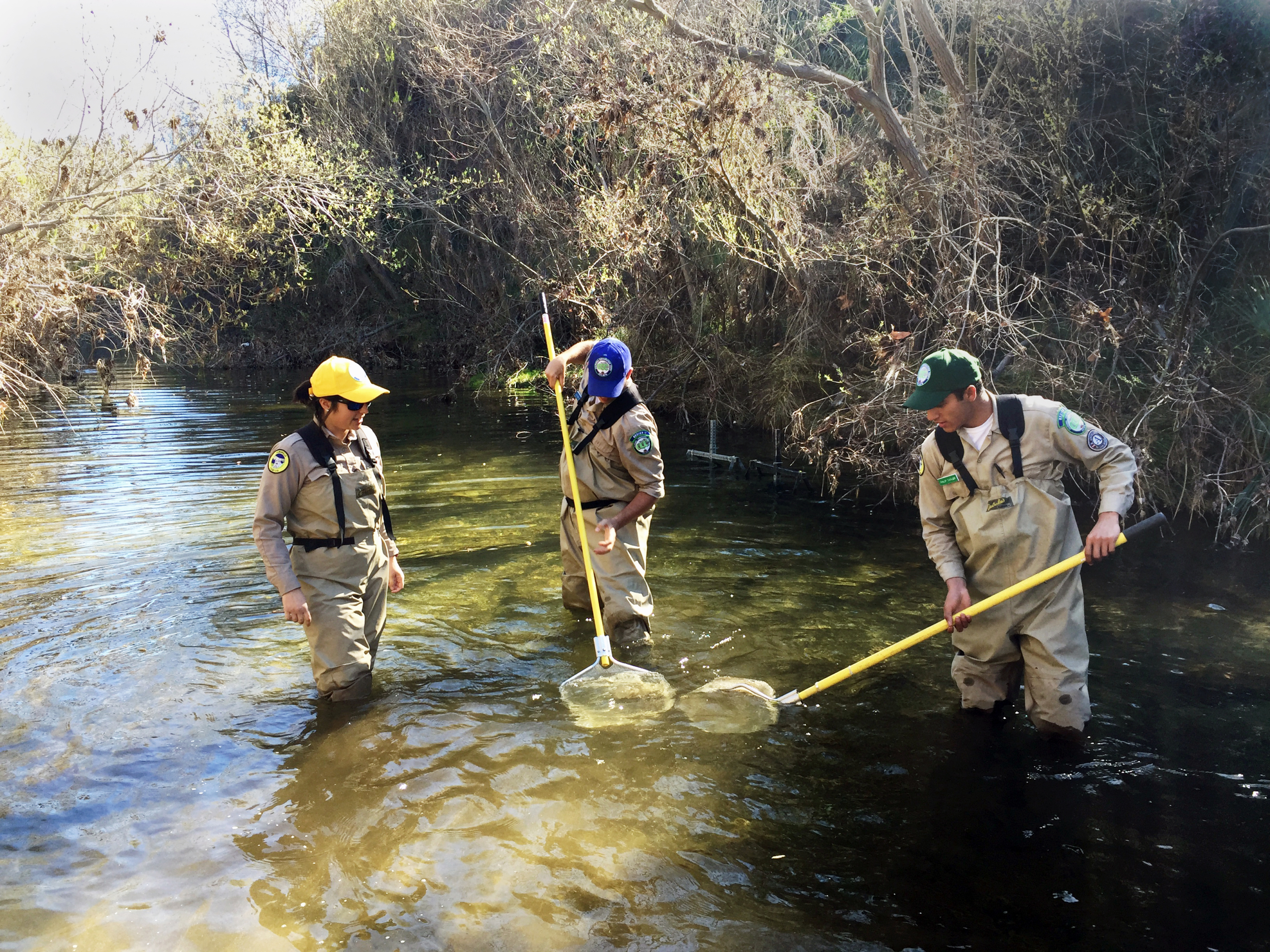
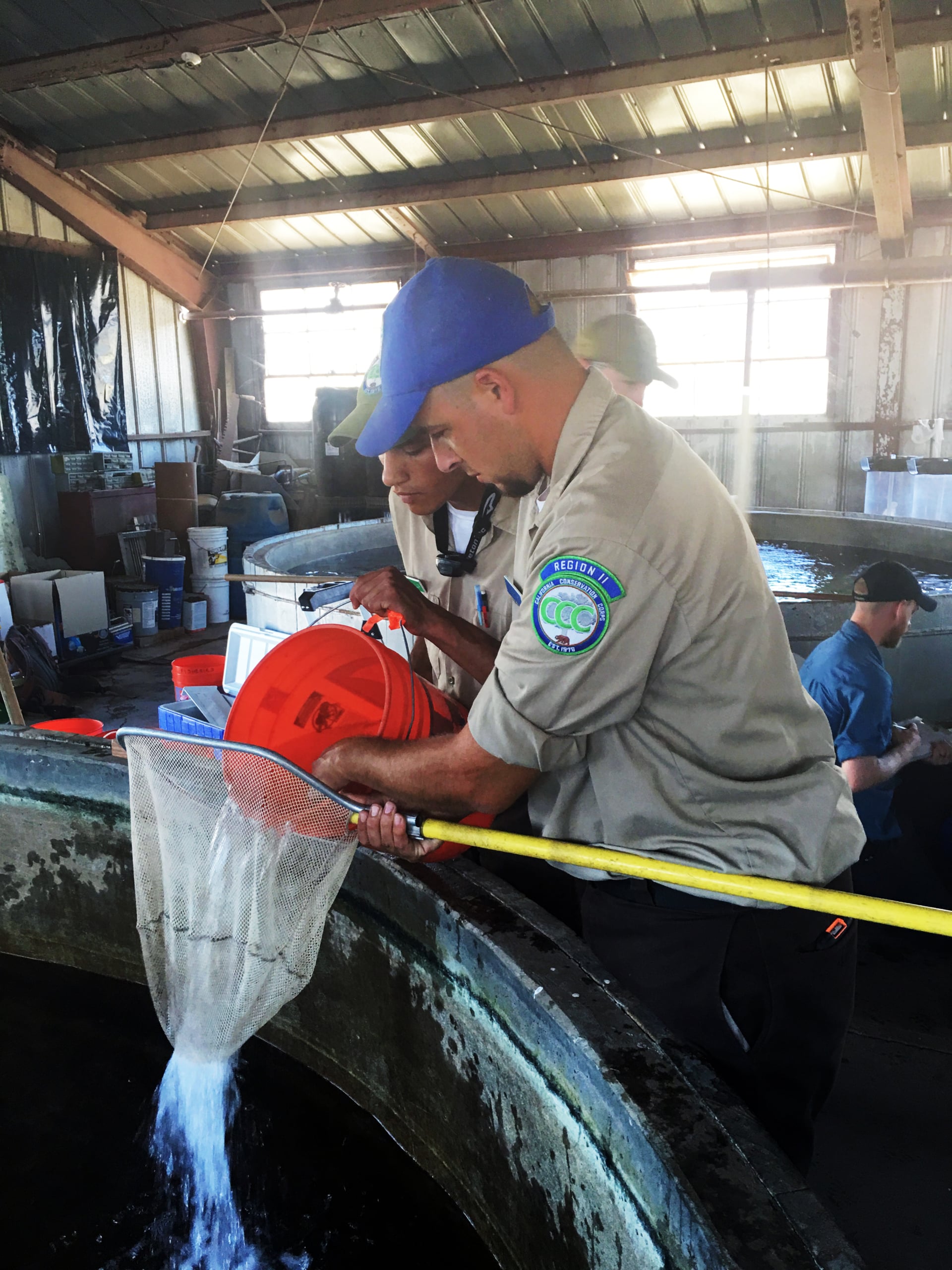
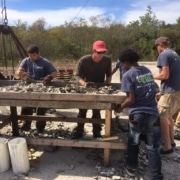
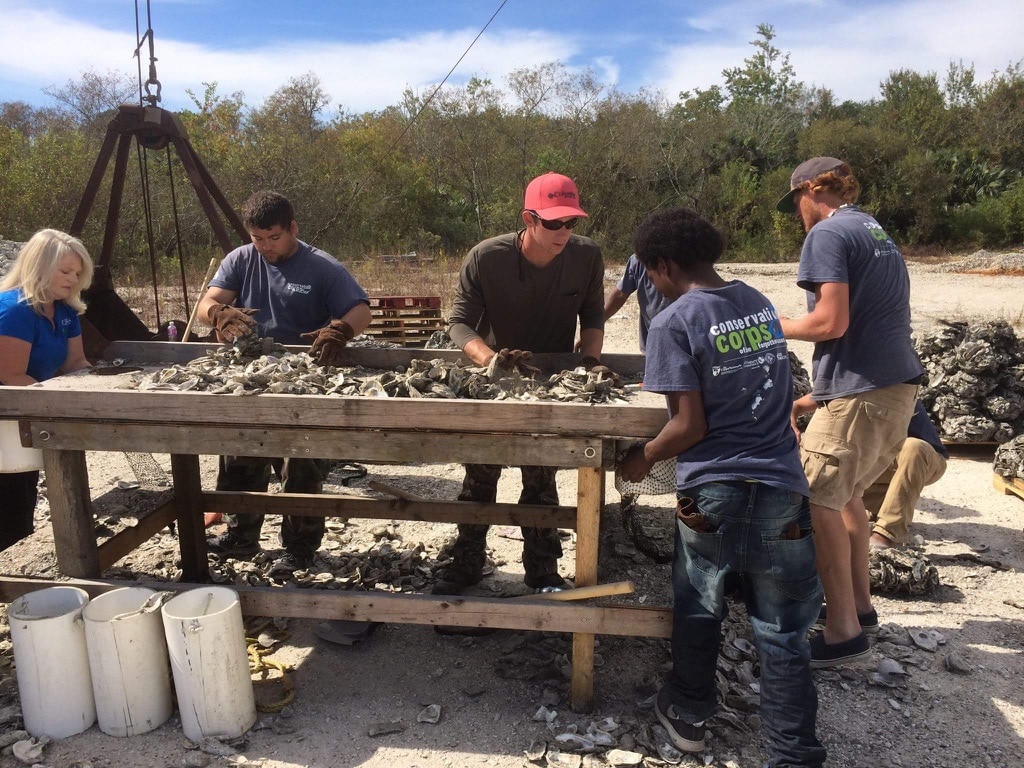 When ten-year-old Holden Foley was helping his oysterman dad and grandpa on their boat in Franklin County, Florida, he didn’t know what other options he had. He never imagined that, 13 years later, he’d be helping to restore and protect the waters he grew up on, while mentoring young men and women looking for something better: just like he was.
When ten-year-old Holden Foley was helping his oysterman dad and grandpa on their boat in Franklin County, Florida, he didn’t know what other options he had. He never imagined that, 13 years later, he’d be helping to restore and protect the waters he grew up on, while mentoring young men and women looking for something better: just like he was.